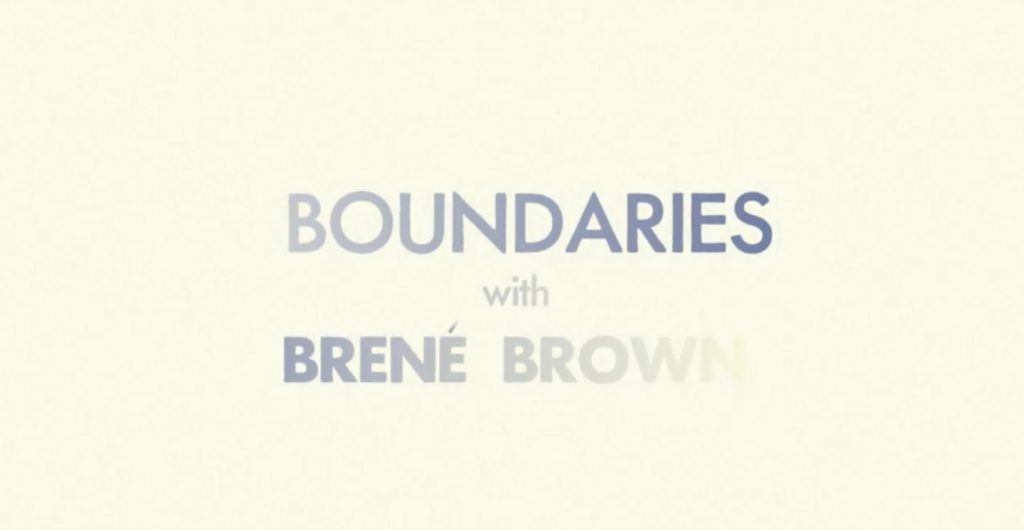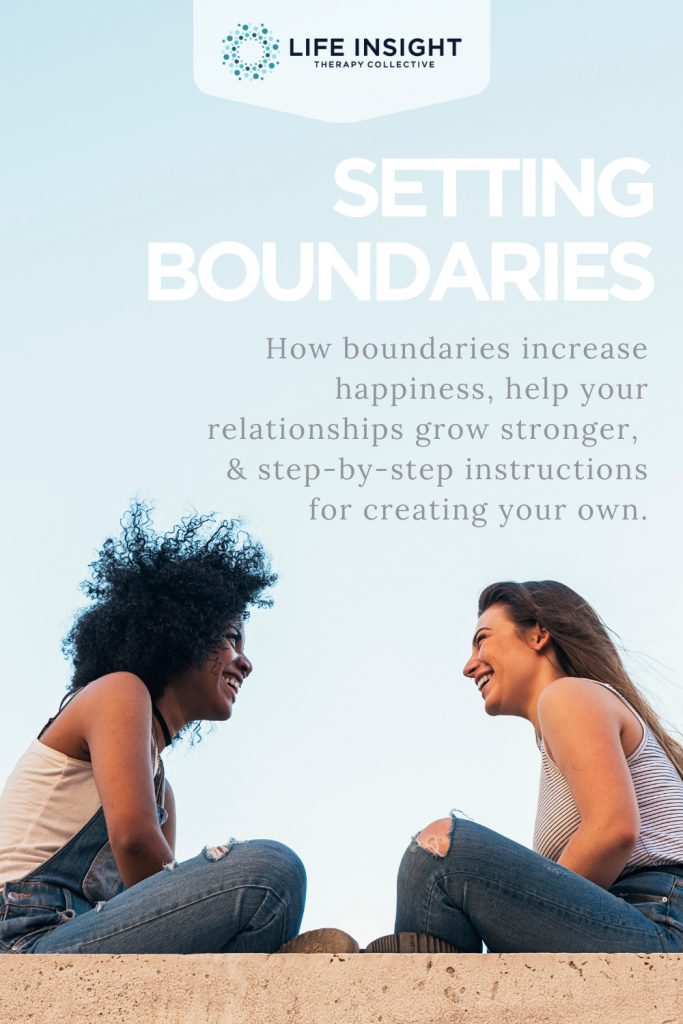Setting Boundaries
Boundaries are a protective barrier between you and every relationship in your life that not only defines your values and personal needs, but keeps you safe, physically, spiritually, and emotionally. As Brené Brown says, “‘Boundary’ is simply what’s ok and what’s not ok.” Setting clear boundaries is a form of self-care – it ensures that you are saying “yes” and “no” to the appropriate things. It also sets in place clear results when the boundary isn’t respected.
There are many benefits from setting strong boundaries. Boundary setting helps you understand your needs and limits, develops your self-respect and your respect for others, helps you become unequivocally aware when your boundaries have been overstepped, allows you to act quickly and with confidence to protect yourself when your limits have been ignored, and helps you build a happy, rewarding life that matches your values.
Setting boundaries also strengthens your relationships. One way this happens is by creating appropriate space for airing grievances. The process of setting boundaries also includes stating your values and desires from the relationship, which creates intimacy and a clear direction for growth. Setting a boundary and experiencing someone respect it establishes and strengthens trust in the relationship. Even more, having a boundary set in a relationship allows for empathy and compassion without burnout.
8 steps for setting boundaries:
Spend some time meditating on how you are feeling.
- Where do you feel stretched?
- Which relationships leave you feeling tired, and which leave you feeling loved and valued?
- Where are you saying “yes” when you want to say “no” and “no” when you want to say “yes”?
- What do you need in order to take care of yourself?
- What things in your life need to be deprioritized or taken off your list altogether?
Determine your core value(s). Find the one thing that is most important to you in relationships, for example: honesty, punctuality, compassion, etc. and start to see how this will guide what boundaries you need to build.
Set a script and act now. Write out what your boundaries are and what you need to do if the boundaries are broken. Setting these things in writing is extremely helpful, especially if you are really struggling with being firm on your limits.
Present your boundary positively in a neutral voice. Do your best to keep any emotions out of this part.
Empathize with the person if they react or defend themselves.
State what you need clearly and concisely (good thing you wrote it down!)
State what you will do if the boundary is not respected.
Give positive feedback when the person honors the boundary.
Let’s end this with some more Brené Brown, shall we? Brené’s living B.I.G. model works like this: “What boundaries need to be in place for me to stay in my integrity and make the most generous assumptions about you?”
“Empathy minus boundaries is not empathy. Compassion minus boundaries is not genuine. Vulnerability without boundaries is not vulnerability. Boundaries are frickin’ important. They’re not fake walls. They’re not separation. Boundaries are not division. They are respect.”
Check out this video from The Work of the People for the full interview with Brené all about boundaries.

Join Our Community.
Sign up for our quarterly newsletter with practice news, timely resources, staff highlights, and other helpful tidbits!
Recent Posts






